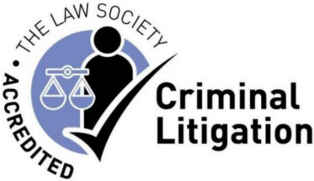How to Improve your Credit Control – 14 Great Tips
Recent research shows that up to 1 in 4 businesses go insolvent every year due to invoices being paid late. Small firms can be particularly vulnerable with estimates that each is owed an average of £30,000 at any one time. No business, large or small, can afford not to take credit control very seriously.
Click here to find out more about our specialist debt recovery service.
Here are a few tips to put into action straightaway:
- Make your terms clear. Agree payment terms at the order stage and have those terms printed on relevant documents such as invoices. Terms should include any credit period and details of interest charges on overdue accounts.
Don’t rely on someone else’s T & Cs which you downloaded from the net. It’s worth getting one of our solicitors to have a look at your T & Cs to see if they need redrafting or updating.
Click here to learn more about how we can help you ensure you have watertight terms and conditions
- Don’t forget all businesses have a legal right to claim interest from late paying customers.
Click here to find out more about how to charge interest on late payments
- Consider credit checking potentially large customers An online credit rating can be on your desk in minutes and costs from £10 upwards. Consider taking up credit references.
- Make your invoice clear An easy to understand invoice will encourage customers to pay more quickly. Don’t forget to include a detailed description of the goods, a reference to the order number and the agreed payment date.
- Get the order right. Any mistake in the order itself, or in the paperwork accompanying the order provides your customer with a ready-made excuse to delay payment.
- Make sure you have a full written procedure of your credit control process – and ensure that everyone follows it.
- Chase outstanding bills ASAP This is perhaps the most important tip of all. Always concentrate on the largest debts first, customers you guess may be in financial trouble and older accounts.
- Do not be embarrassed about requesting payment – never forget that it is your money. Phoning is one of the fastest ways to persuade late payers to pay up – never call on Monday or Friday.
- Deal with excuses. Always be sceptical of excuses – they can often be simple delaying tactics. Put these customers high on your chasing list. Have a standard policy on dealing with common excuses such as:
- “I haven’t received your invoice” – check the invoice address is correct and immediately e-mail another copy to the person you spoke to. Phone to check it has been received and ask when you can expect payment
- “I’ll deal with it shortly” – ask when
- “The cheque’s in the post” – ask for the postal date and cheque number
- Keep clear written records – including a log of any call with your customer about payment of the bill – including the date, time, who you spoke to and what you discussed.
- Send 7-day letters – A 7-day letter is the first stage of the legal process; you cannot sue unless you have sent that person such a letter. Some businesses have a policy of not paying until they receive such a letter.
Consider appointing a specialist debt recovery solicitor to send 7-day letters on your behalf. Letters from solicitors are often taken much more seriously and can produce significantly improved results.
- It’s good to talk. Maintain a positive and personal relationship with your customers. You are more likely to get the results you want if you adopt a friendly approach. Explain that you value their business and have been advised to take legal action but only want to do so if there is no alternative. Speak to the managing director or finance director of the business, or another decision maker if possible.
- With ongoing clients or customers, consider withholding your services or any further supply of your goods, until any outstanding invoice has been settled.
- Thank customers who pay on time
Whatever you do, don’t delay. Deal with unpaid bills as soon as possible. Also make sure you have a written credit control system in place and that you use it.
How our debt collection solicitors can help you
If customers continue in failing to pay invoices, why not take advantage of our cost-effective debt recovery service – giving you the chance to recover your debts at minimal cost by instructing us to prepare for you a Solicitors’ 7 day debt recovery letter.
Click here to find out more about our specialist debt recovery service.













